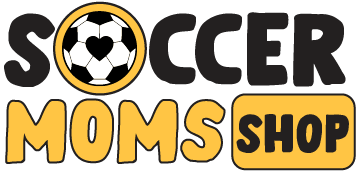Have you ever said something to your child you wished you could take back?
Between the car ride to the game, the stands, the sidelines, and the car ride home from the game, there’s a lot of damaging words spoken by parents to their athletes.
Words can hurt. Words can cause lifelong damage. Words cannot be unspoken.
I love the song by Eric Church called “Kill a Word.” In it he talks about words he wishes he could “kill” or get rid of when they cause pain.
If I could kill a word and watch it die
I’d poison never, shoot goodbye
Beat regret when I felt I had the nerve
Yeah, I’d pound fear to a pile of sand
Choke lonely out with my bare hands
I’d hang hate so that it can’t be heard
If I could only kill a word
In youth sports, there are lots of words that should be “killed.” These are the words that tear down, discourage, and squash the spirit of young athletes.
If I could “kill” or get rid of some words in youth sports, here’s my top 5:
Perfectionism.
There’s a difference between excellence and effort, and perfectionism. In its purest sense, striving to be perfect is not a bad thing, but perfectionists turn it into an obsession and the result is that they are extremely hard on themselves when they fall short. Some of them spend way too much time lamenting and beating themselves up, instead of learning from mistakes and moving on.
Quitting.
I’m not talking about quitting a sport at the end of the season because your child is ready for something else. The kind of quitting I’d like to extinguish from youth sports is the kind that athletes do when things get hard or when the season is not going the way they want it to go. Quitting is not a good habit for your child to get into. When your child sticks out the tough times, they gain inner strength, something they will miss if they continually quit.
Self-Doubt.
“I can’t” is a phrase that my husband never liked to hear from the kids he coached and from our three kids. There’s a lot of reasons for self-doubt in athletes, a lot of it stemming from how others treat them. But when your child lacks self-confidence, he cannot play his best. Self-doubt says “I don’t believe in myself; I can’t do this. I don’t even want to try.” On the other hand, self confidence says, “I can do this, but if I make a mistake, I’ll do it until I get it right.”
Politics.
Politics is often perceived as a distasteful word in everyday life, but in youth sports, it’s definitely ugly. Politics means “to deal with people in an opportunistic, manipulative, ordeviousway, as for advancement.” When coaches and parents play politics for the advancement of a certain child or a certain team, it turns youth sports into an adult circus that leaves the kids wondering what the heck is going on.
Mistrust.
Kids cannot play to their potential when coaches, parents or teammates do not believe in them. I saw the power of a coach’s belief in the life of my son; even after a bad game, the coach expressed that belief in him.
But flip the coin and you will see that mistrust will most likely bring out the worst in someone.
I know there are times as parents when our kids lose our trust and it must be earned back. But in the arena of youth sports, a cloud of mistrust felt by an athlete from his coach or teammates can easily become a self-fulfilling prophecy.
Will you make an effort to “clean up” the language of youth sports so that…
perfectionism isn’t celebrated,
quitting isn’t encouraged,
self-doubt is diminished,
politics is abolished,
and mistrust is squelched?
Source: https://rcfamilies.com
If you like this article, Follow us on FACEBOOK and INSTAGRAM and PINTEREST!

